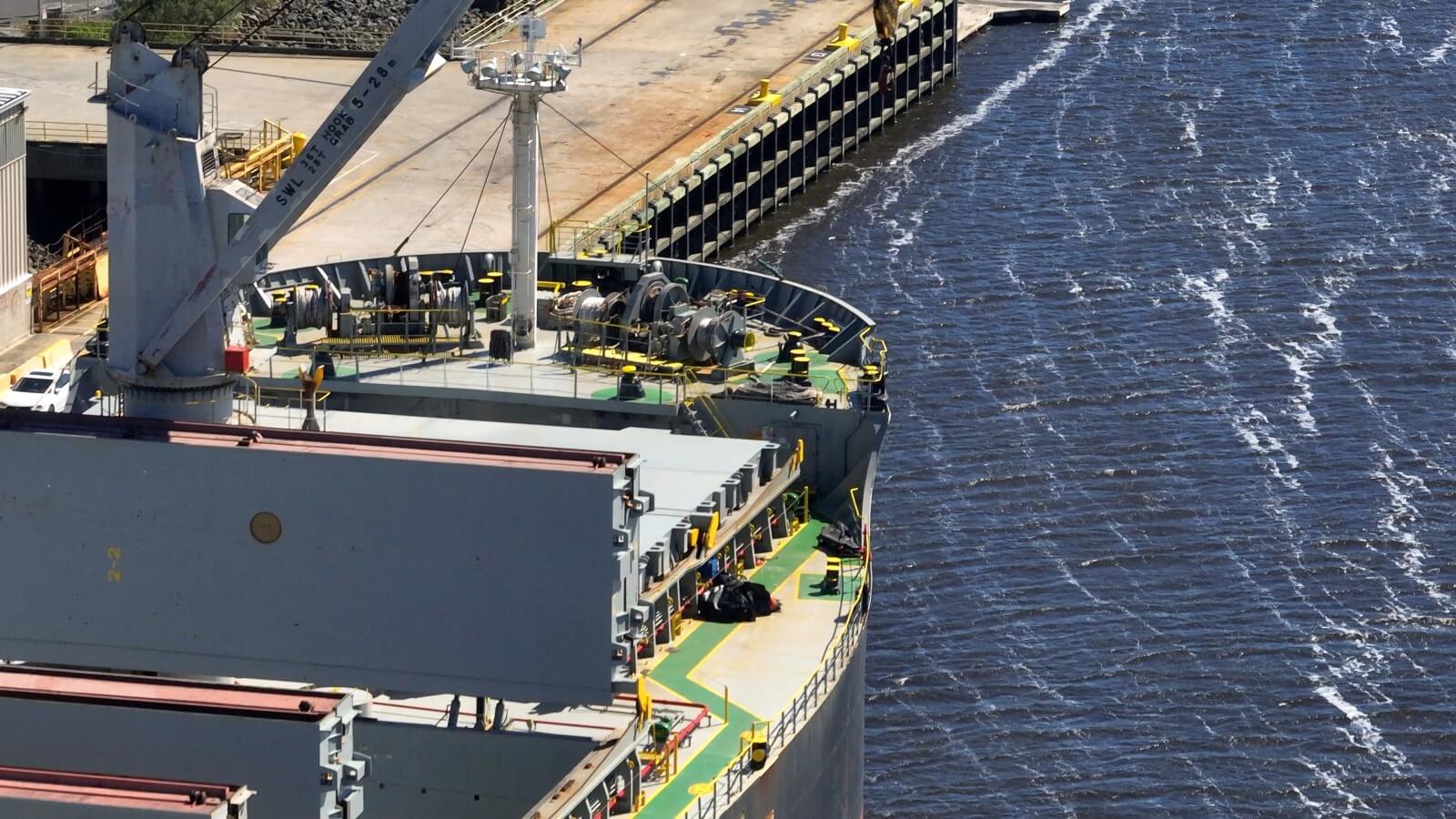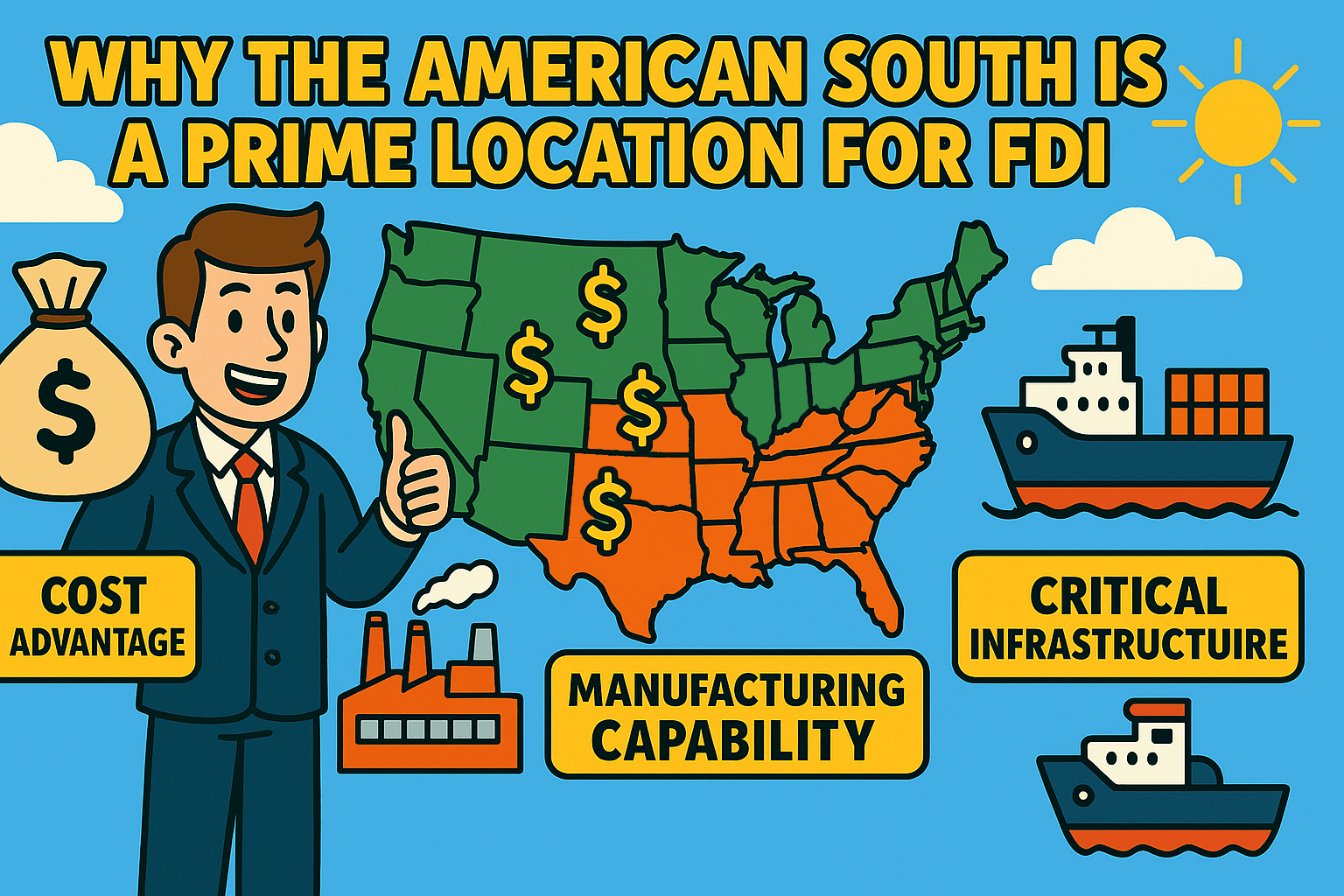Why the American South is a prime location for FDI

Why the American South is a prime location for FDI
Foreign Direct Investment (FDI) in the American South is nothing new. Forty-one percent of all American FDI is concentrated in the South. North Carolina has seen a 20% bump in FDI post-COVID, and companies have been making major investments in all Southern states, such as with BMW’s $1.7 billion expansion in South Carolina. The question is, why is the South such a hotbed for FDI?
There are many reasons for the success of FDI in the South, not the least of which is cost advantage and critical infrastructure. The states of the American South feature many tax incentives and lower operating costs than their northern and western competitors.
“Additionally, the South offers strategic logistics advantages with access to major ports,

interstates, and airports, facilitating domestic and international trade,” said Bruce Takefman of Research FDI. “Combined, these factors make the South an attractive and sustainable destination for foreign direct investment.”
The sheer might of the South’s manufacturing capabilities has played a major role in drawing foreign business interest. One example of this is the rise of the clean tech industry in the American South. Some of the clean tech growth in the South is due to federal incentives, such as the Inflation Reduction Act which, according to Takefman, “allocated over $369 billion for clean energy and EV production, fueling significant investment in the South. States like Georgia and Tennessee have capitalized, attracting multi-billion-dollar EV and battery investments from Hyundai, SK On, and LG Chem.”
Should the federal government continue to promote and incentivize clean tech, this is an industry that will continue to rise in the South.

Southern manufacturing capability is an important driving factor in the South, as is workforce availability. Other factors include “infrastructure, permitting speed, and long-term cost competitiveness,” Takefman said. This is evident in the states like Tennessee, where LG Chem invested $3.2 billion in a battery plant in Clarksville, TN.
The critical infrastructure of the South also attracts many FDI opportunities. Many Southern locations, like Savannah, Georgia, offer access to major interstates, ports, and international airports that make them a prime FDI location.
Trade show attendance has also helped boost FDI in SEDC states specifically. The SEDC’s 2024 initiatives included upping trade show attendance and making trade show attendance more “cost effective” for SEDC members, something they have certainly accomplished.
“These events help investment promotion professionals identify companies looking to expand, especially in high-potential niche sectors,” Takefman said. “Though top executives may not always attend, the volume and quality of contacts provide strong long-term value. Delegations also signal a region’s commitment to a sector, enhancing branding and enabling valuable follow-up. Trade shows – domestic or international – are key platforms for showcasing regional strengths, engaging directly with prospects, and promoting competitive advantages.”
FDI is on the rise in the South and shows no signs of slowing. Even the rapidly changing global political climate can benefit the South from an FDI perspective.
“Companies are actively reassessing supply chains, creating a window for regions like those represented by SEDC to position themselves as stable, business-friendly alternatives,” Takefman said. “The Southern U.S., with its strong logistics infrastructure, lower operating costs, and pro-business policies, is well-placed to capture future waves of FDI once the global environment stabilizes.”
